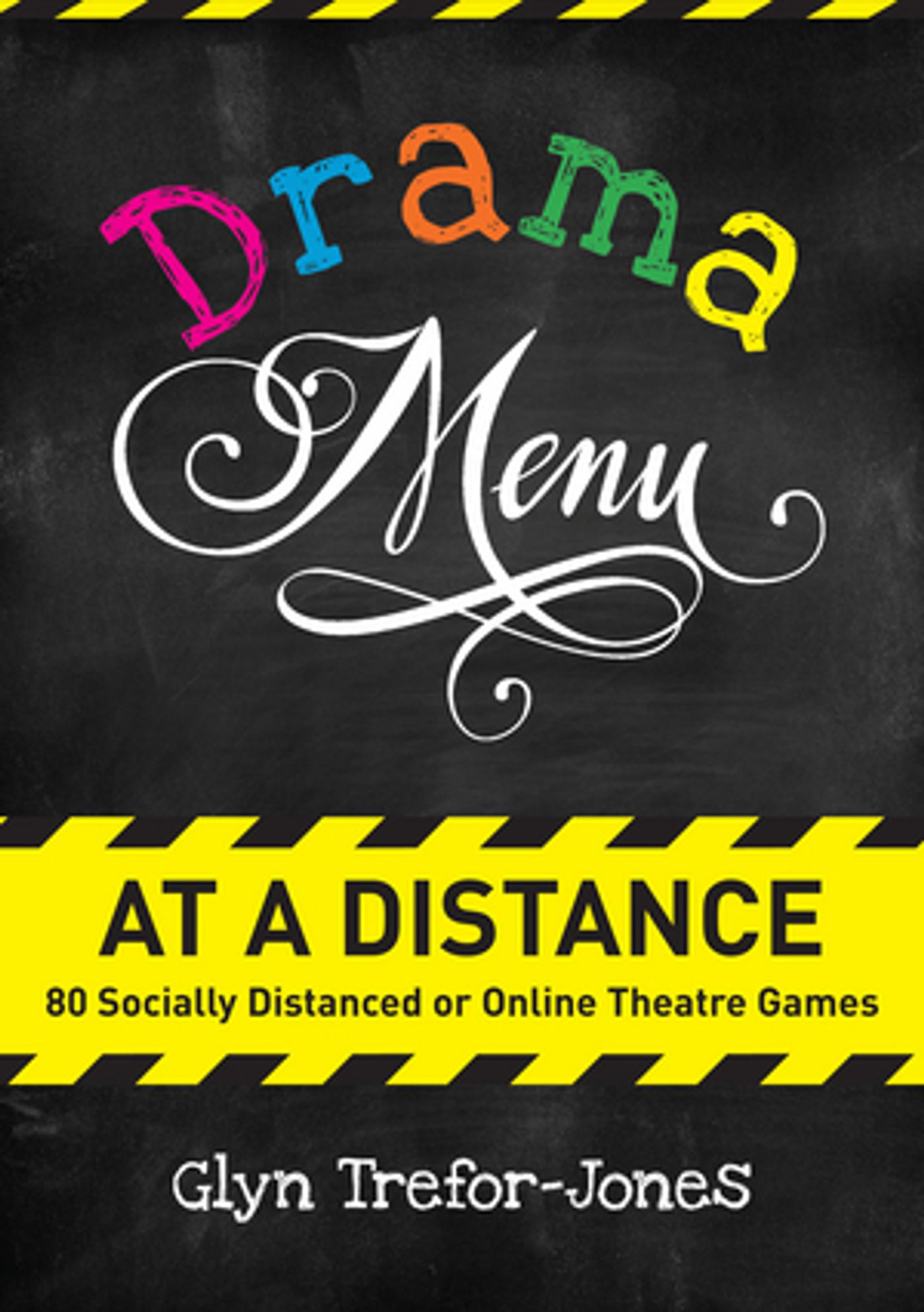Book Review: DRAMA MENU AT A DISTANCE, Glyn Trefor-Jones
Socially distanced drama games for theatre in a pandemic

![]() Every drama teacher, youth theatre director or community arts worker knows the value of a good drama game. A guaranteed motivator for even the most troublesome group, they are a fantastic excuse for fun, while sneaking in a bit of learning and skills development along the way.
Every drama teacher, youth theatre director or community arts worker knows the value of a good drama game. A guaranteed motivator for even the most troublesome group, they are a fantastic excuse for fun, while sneaking in a bit of learning and skills development along the way.
Alas, like so many things in these challenging times, many favourite drama games, beloved of young people (and the not so young!), cannot fit in with the necessary restrictions on social distancing.
Luckily, a new book from Glyn Trefor-Jones, Drama Menu At A Distance, published by Nick Hern Books, sets out to help those trying to keep lessons and rehearsals both active and safe. Featuring 80 games and activities, the book also comes with an online resource pack for any necessary printables, and advice on running practical sessions in a socially distanced fashion.
This new work shares its structure with Trefor-Jones's previous book, Drama Menu, in that the activities it describes are broken up into starters, appetisers, main courses and desserts. Starters are games that are designed to engage and focus, while appetisers tend to have a flavour of skills development about them. Main courses involve creating some sort of short performance, while desserts are activities designed for video conferencing drama sessions, but that can also work in a physical setting.
It is an exceptionally timely piece, and likely to be very popular with those struggling to keep practical drama alive for young people. All of the games are explained clearly, often with handy examples.
Some of the activities are slightly reworked old chestnuts, like Wink Murder, but with 80 to choose from, there are likely to be some new ideas for everyone in this volume - many of which may become permanent parts of your repertoire, even when we can rehearse normally again.
But how do they work in practice?
I decided to try the games out with my drama classes at a comprehensive secondary school in central Scotland and see how the pupils took to them. Each class got to pick a number from one to 80 and got a chance to play the corresponding game.
Among the highlights was "1-Minute Focus", which worked well with a challenging class of 13-year-olds first thing in the morning, serving as a quick way to calm them.
"Hands in the Bushes", which involved an element of quizzing on the spot, was one I was a little dubious about at first, but the slight challenge of quick-fire answers actually helped keep interest in the game going enough for several attempts (not to mention enough interest on the school grapevine for other classes to ask to try it).
Designed for online meetings, many of the Dessert activities would work well in a situation where each participant is based at home, however they were also easily adaptable to the classroom with slight tweaking. "Antiques Roadshow", for example, which puts pupils in the role of antique experts, was still effective with objects from school bags repurposed as ancient treasures, though bringing in a random object from home might result in more entertaining variety.
Particularly among the Main Courses, there are quite a few improvisation activities, and "Speed Hate" seemed an especially accessible example, only asking participants for 20 seconds of content. A class of 14-year-olds, with a mixture of confident actors and more reluctant performers, took to this game surprisingly well, describing it variously as "fun", "hilarious" and "a funny way to bully each other!", in the low-stakes competitive fashion that can make for a brilliant drama game.
A more experienced senior class surprisingly struggled with one of the improvisation games ("The Object of The Exercise"), despite enjoying the concept, deciding it was "a bit awkward" and would be "more fun if the whole class was involved" .
Indeed, a lot of the games and activities involved an audience watching a small group, and it would have been nice to have a larger number of games for whole groups. One of the benefits of drama games is their ability to engage a large number at once, getting everyone active and involved, whereas improvisation with less confident groups can be something of a struggle. As such, I expect those who will get the most out of this work would be based in youth theatres and community groups, which are more "opt in" by their nature.
Overall, Drama Menu at a Distance offers some much-needed inspiration for safe, engaging and practical activities that will benefit many people striving to keep drama going in these unprecedented times. While not every game may work for your particular circumstances, with 80 different games on offer, you will certainly find something to suit your class, group or rehearsal. Treat this book as a buffet of ideas, and you are sure to keep a few on your plate even after the pandemic.
Drama Menu at a Distance by Glyn Trefor-Jones is now available from Nick Hern Books
Reader Reviews
Videos

